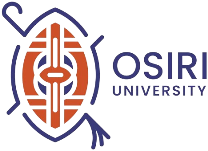Introduction:
The tea industry is a significant contributor to Kenya’s economy, providing employment and income to thousands of small-scale farmers. However, challenges in distribution and logistics have historically affected the industry’s efficiency and profitability. This case study explores how a Kenyan tea cooperative, ChaiHarvest, improved its distribution channels and logistics management to overcome these challenges.
Background:
ChaiHarvest is a cooperative of small-scale tea farmers located in the lush tea-growing regions of Kericho County, Kenya. The cooperative has been dedicated to producing high-quality tea leaves for decades. However, issues related to distribution and logistics had hindered its ability to reach wider markets and optimize profits.
Challenges:
- Transportation: The tea farms in Kericho are often located in remote areas with poor road infrastructure. This resulted in delays in transporting harvested tea leaves to processing factories, leading to a decrease in product quality.
- Warehousing: ChaiHarvest struggled with inadequate storage facilities for processed tea. This limited the cooperative’s ability to store surplus tea during peak production seasons, causing waste and financial losses.
- Market Access: The cooperative had limited access to international markets due to inefficient export processes. This restricted ChaiHarvest from capitalizing on the global demand for high-quality Kenyan tea.
Strategy and Solutions:
To address these challenges, ChaiHarvest implemented the following strategies:
- Infrastructure Improvement: The cooperative collaborated with local authorities and international development organizations to upgrade road infrastructure, reducing transportation times and improving the quality of harvested tea leaves.
- Modern Warehousing: ChaiHarvest invested in modern warehousing facilities with controlled humidity and temperature levels. This enabled the cooperative to store surplus tea leaves more efficiently, preventing quality degradation.
- Export Partnerships: ChaiHarvest formed strategic partnerships with established tea export companies experienced in navigating international markets. These partnerships facilitated the export of Kenyan tea to a broader range of countries.
Results: As a result of these strategies, ChaiHarvest achieved significant improvements:
- Enhanced Product Quality: Improved transportation and warehousing led to a substantial reduction in the degradation of tea leaf quality.
- Reduced Waste: Modern warehousing facilities allowed ChaiHarvest to store surplus tea efficiently, reducing waste during peak production periods.
- Expanded Global Reach: Strategic export partnerships enabled the cooperative to access international markets, increasing its revenue and profitability.
Conclusion: ChaiHarvest’s case highlights the critical role of efficient distribution channels and logistics management in the Kenyan tea industry. By addressing transportation and warehousing challenges and establishing export partnerships, the cooperative overcame obstacles and realized significant growth.
